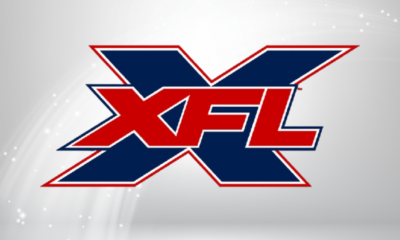
The NFL season kicks off on the 6th of September when the Chiefs host the Ravens, and fans from every corner have geared up for what seems to be an action-packed season of football. At the same time, many are no doubt grappling with another all-too-familiar problem: the outrageous cost of NFL TV packages.
For years, the NFL’s approach to pricing was largely a result of the league trying to put as much distance as possible between its revenue and fan accessibility. Pointed at most was the Sunday Ticket package.
We will look at the status of NFL rights today from a television vantage point, describe risks and rewards for the league, and consider potential solutions to this Sunday Ticket quagmire.
The Sunday Ticket Dilemma
The Sunday Ticket package, the high-end premium add-on that allows access to every out-of-market NFL game; in turn, it typically becomes a focal point of viewer complaints and a debate point for sports business analysts over the NFL’s pricing strategy.
While the league has traditionally been adamant about its pricing model, claiming that it provides incredibly good value to fans, most consumers feel they are being asked to pay an inordinately high price. To be more specific, many have been outraged at having to buy season-long full-game packages when they were essentially out-of-market fans of just one particular team.
The critics see the price strategies as designed to get the most revenue out of consumers rather than return a value to the fans. Their point is that Sunday Ticket is kept at a high price to prevent people from getting rid of local cable or satellite subscriptions so that money will continue to come in from many distributors.
This has also raised accessibility concerns regarding the high costs of this Sunday Ticket package. This could be a great strain on pockets for fans whose budgets are fixed, hence limiting them from enjoying the thrill that is the NFL. This has called into question whether the League really does care to make football accessible to all fans.
Of late, more fans have been found rallying for Sunday Ticket flexibility. Many even suggested that the league could make things easier on their customers by allowing them to pay for individual games if not the Sunday packages rather than the consumer being held hostage to taking up a full season. A majority also argued that subscription fees should be brought down especially for those fans not keen on watching so many of the games, even on the Sunday Ticket Package.
ESPN’s Failed Attempt
ESPN made an audacious bid to the NFL: reduce the price of Sunday Ticket to $70 for full season and offer single-team packages in an attempt to change the direction for television rights. The price offer would have unquestionably been a major change of price policy from the NFL.
ESPN figures that would be great for the fans and the NFL themselves. It may be a win-win for the league, with a reduced price and extended distribution, to attract more eyes and possibly higher ratings. It insisted that single-team packages will make things simpler to customize and let fans pay for just what they want to get. But ESPN’s offer was dismissed.
In a statement, Brian Rolapp, the NFL’s chief media and business officer said NFL will not be making any changes to its current pricing model, because it is “the best in the world.” He yet again reminded everybody that all games are televised over free, over-the-air channels in the local teams’ markets, thus making it quite easy for fans to see their favorite teams without necessarily parting with a penny for a subscription.
Potential Solutions to the Sunday Ticket Dilemma
The Sunday Ticket dilemma has been around for several years, with demands from fans for more affordability and flexibility. Although the NFL has resisted making big changes, there are some options on the table that could help solve this problem.
A tiered subscription model is a potential solution. This way, fans have an option of different plans that work best based on their needs and pockets. In the basic plan, subscribers would have access to a limited number of games, while in the premium plan, all are opened up. This puts greater control in the hands of fans to decide what they are paying for and getting in return.
The current streaming partners are not making things easy. The NFL SundayTicket subscription on YouTube TV costs $379/year. This does not include the $72.99/mo for the required subscription. By exploring partnerships with top crypto casinos, the NFL could uncover potential revenue streams while offering unique incentives or discounts to fans. Many crypto casinos have the live stream feature which the NFL can tap into. They can offer a minimum wager requirement that will give you access to stream a game live.
Finally, the NFL should offer single-game, pay-per-view packages. Fans could pick the games they wanted to watch and not be forced to pay for those they have no interest in. While this would not give the league an additional stream of revenue on a regular basis, it most certainly would relieve all the concern that is currently viewed as a bottleneck by fans.
Conclusion
The failed ESPN bid shows the NFL’s general reluctance to break free from the moorings of their traditional pricing strategy. League officials have freely admitted that the demand for more flexible, cheap options is on the rise, but they have yet to bend with any appreciable degree. Whether the NFL will finally change course to become friendlier to the consumer as the TV quality demand changes still remains to be seen.
Unleash the Action: Sign up for XFL Insider and Fuel Your Passion for Football!

USFL and XFL Merger: A Deep Dive into the Historic Collaboration
Latest Podcast
-


XFL Podcast
/ 1 year agoXFL-USFL Merger Insights: Houston’s Future, Draft News, Player Movement – Ep. 216
Welcome to Episode 216 of the “XFL Week In Review,” your premier destination for...
By Mark Perry






